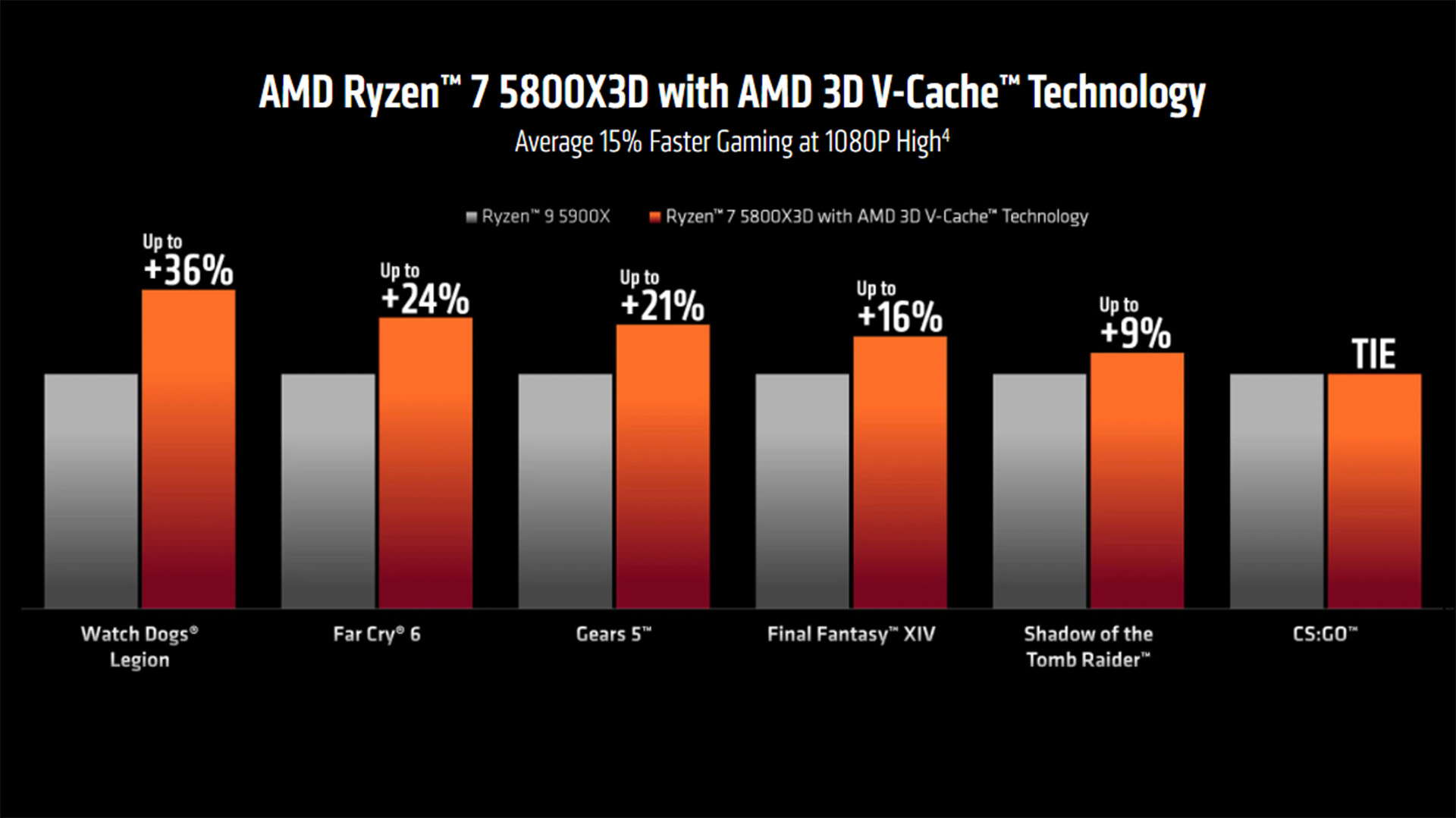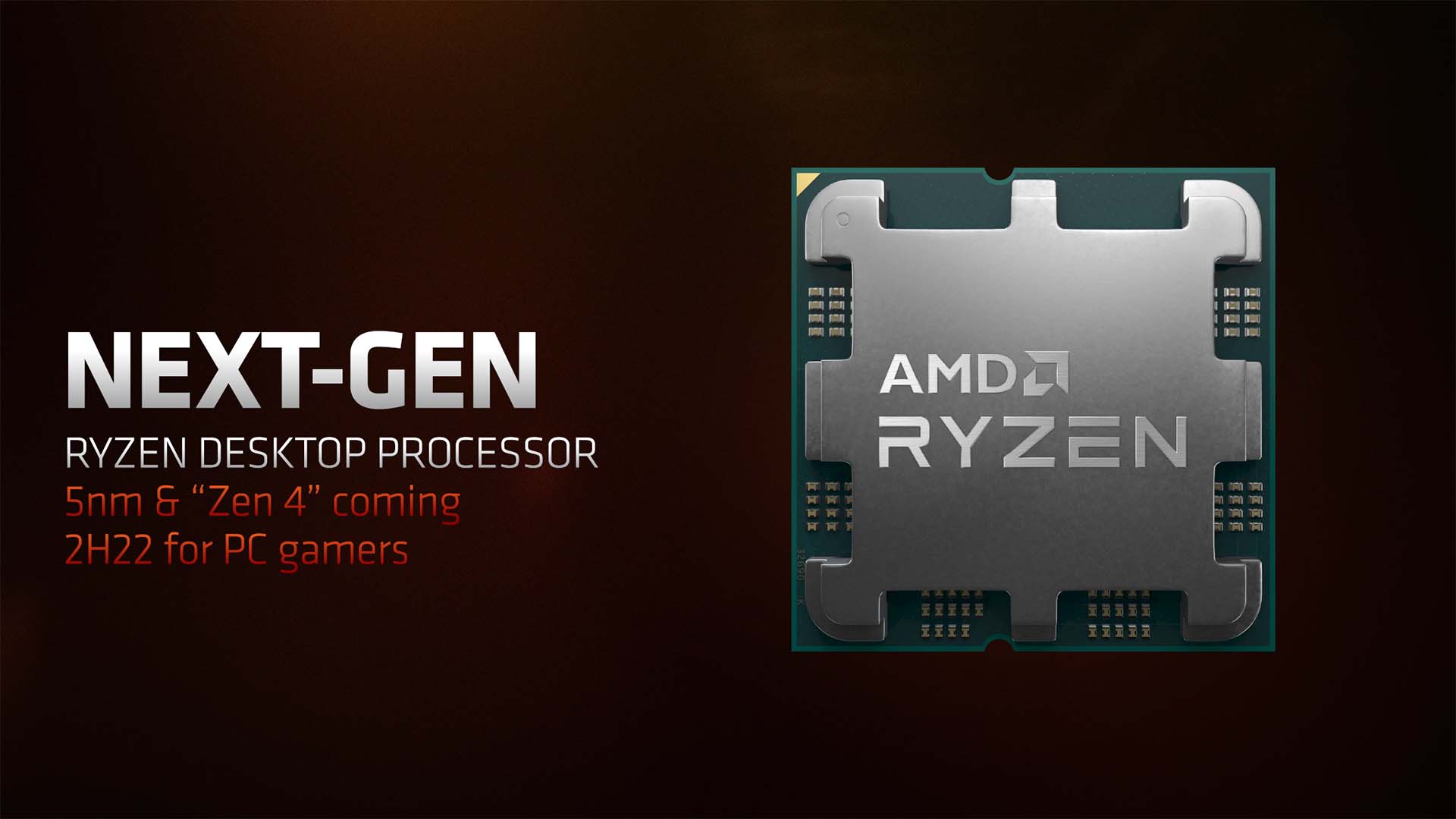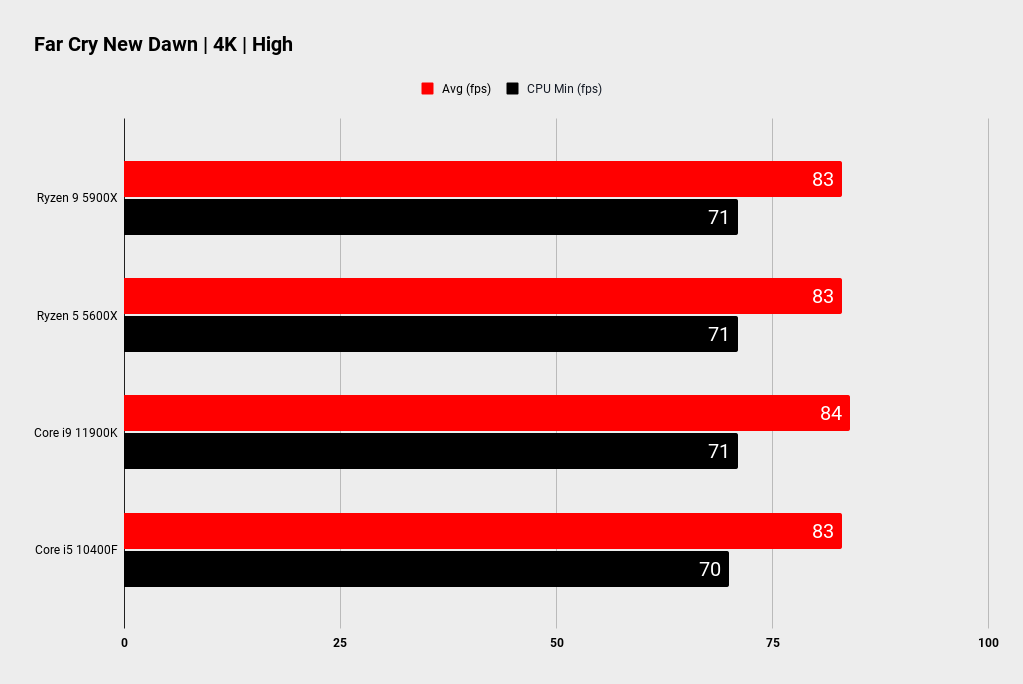Tempted by the Ryzen 7 5800X3D? AMD's 12-core 5900X is a better deal for 4K gaming and more
Both CPUs are priced at $449 following big discounts on AMD's 12-core chip.

Keep up to date with the most important stories and the best deals, as picked by the PC Gamer team.
You are now subscribed
Your newsletter sign-up was successful
Want to add more newsletters?

Every Friday
GamesRadar+
Your weekly update on everything you could ever want to know about the games you already love, games we know you're going to love in the near future, and tales from the communities that surround them.

Every Thursday
GTA 6 O'clock
Our special GTA 6 newsletter, with breaking news, insider info, and rumor analysis from the award-winning GTA 6 O'clock experts.

Every Friday
Knowledge
From the creators of Edge: A weekly videogame industry newsletter with analysis from expert writers, guidance from professionals, and insight into what's on the horizon.

Every Thursday
The Setup
Hardware nerds unite, sign up to our free tech newsletter for a weekly digest of the hottest new tech, the latest gadgets on the test bench, and much more.

Every Wednesday
Switch 2 Spotlight
Sign up to our new Switch 2 newsletter, where we bring you the latest talking points on Nintendo's new console each week, bring you up to date on the news, and recommend what games to play.

Every Saturday
The Watchlist
Subscribe for a weekly digest of the movie and TV news that matters, direct to your inbox. From first-look trailers, interviews, reviews and explainers, we've got you covered.

Once a month
SFX
Get sneak previews, exclusive competitions and details of special events each month!
AMD has just announced the Ryzen 7 5800X3D's price and release date, meaning we now have some idea how this chip is set to stand come launch day. This exciting 3D stacked chip will fetch $449 at launch—the same price as the Ryzen 7 5800X when it first launched over a year ago, and the same price as the now heavily discounted Ryzen 9 5900X.
That means there's going to be a big question in need of answering come launch day: Should you spend your money on the eight-core Ryzen 7 5800X3D or go with the 12-core Ryzen 9 5900X?
It's a tough call without the complete picture of benchmarking data, but what we do know is that AMD's reporting the Ryzen 7 5800X3D will manage to maintain around a 15% lead in gaming at 1080p over the 5900X. That's a pretty wild number—you wouldn't expect that sort of uplift from a CPU without some further changes to the underlying architecture.
You're getting an extra helping of L3 cache on the Ryzen 7 5800X3D instead of any major updates to the Zen 3 architecture that powers all Ryzen 5000-series CPUs. In close partnership with TSMC, AMD is placing a bank of L3 cache on top of its current chiplet design—a taste of the 3D die stacking technology that we'll see used throughout chipmaking in coming years. More L3 Cache close at hand means fewer calls out to memory elsewhere, reducing latency, and reportedly increasing gaming performance by an impressive margin.
But we're talking 1080p here. That's a resolution that's more affected by CPU performance due to the speed at which a GPU can render frames. For every frame a GPU spits out, the CPU has to follow. So naturally, at 1080p, where frame rates often number in the hundreds, your CPU can have a larger impact on your overall performance as it tries to keep up with your highly-threaded GPU.
Testing or benchmarking a CPU at 1080p is a great way to extract an idea of the performance differences between them, but it's also true that games tend to become far more GPU limited in their performance the more pixels you throw at them.

| Header Cell - Column 0 | Ryzen 7 5800X3D | Ryzen 9 5900X |
|---|---|---|
| Cores / threads | 8 / 16 | 12 / 24 |
| Boost clock (GHz) | 4.5 | 4.8 |
| Base clock (GHz) | 3.4 | 3.7 |
| TDP (Watt) | 105 | 105 |
| Process node | TSMC 7nm | TSMC 7nm |
| L3 Cache (MB) | 96 | 64 |
| L2 Cache (MB) | 4 | 6 |
| MSRP | $449 | $549 |
| Sale price | N/A | $449 |
At 4K then, the dependency on your CPU is far less pronounced. You can absolutely still bottleneck as a result of your CPU at 4K, but you're less likely to see much of a difference between high-end CPU models while gaming at this resolution.
Keep up to date with the most important stories and the best deals, as picked by the PC Gamer team.
Take the difference in frame rates while testing on an RTX 3080 machine powered by a Ryzen 9 5900X and one using the much cheaper Ryzen 5 5600X. In Far Cry New Dawn at 4K, for example, there isn't any. The same goes for Intel's last-generation processors: only a single frame separates the Core i9 11900K and the Core i5 10400F.
Whether you go for the Ryzen 7 5800X3D or the Ryzen 9 5900X comes down to the resolution you're gaming at, then. If you're looking to maximise competitive framerates at 1080p, the Ryzen 7 5800X3D ought to be excellently suited to that task. If you're looking for 4K performance, then the Ryzen 9 5900X should suffice nearly as well.
The reality is, you should buy a more expensive CPU for more cores, greater throughput, and improved single-threaded and multi-threaded performance. It should be a more holistic purchase.
And it must be said that you're getting a whole lot more than just matching gaming performance with the Ryzen 9 5900X. It has four more cores and eight more threads at its disposal, and those will make a difference if you're throwing your PC at a lot of multithreaded applications or demanding workloads, such as video editing or messing about sculpting a 3D model. GPU acceleration is common today, but there are still many times where simply having more cores to throw at a problem returns better results.
The Ryzen 9 5900X is worth considering while it's on offer for less.
And I think therein lies the reason why I'm still leaning towards the Ryzen 9 5900X here—I'm not too swayed by the argument of sacrificing cores for more L3 cache just yet. It's not because the Ryzen 7 5800X3D isn't wholly exciting as a concept—3D V-Cache feels like it is the future—it's that recent discount pricing has the Ryzen 9 5900X offering such a great deal it's hard to pass up at this price.
The same can be said for the Ryzen 7 5800X, which can be had for $349 right now. You could argue that without much need for a heavyweight core count altogether, you could just save the cash and chip that towards a better graphics card instead. That's definitely money well spent if you can manage to bump your GPU up a tier in performance, and frame rates massively with it.
There's something else I'm a little wary of here, too. I don't want to over-commit to an unknown quantity in Zen 4, but it's something to think about as it's set to arrive later this year.


Best CPU for gaming: The top chips from Intel and AMD
Best gaming motherboard: The right boards
Best graphics card: Your perfect pixel-pusher awaits
Best SSD for gaming: Get into the game ahead of the rest
The 5800X3D is a test case for a 3D V-Cache technology, and like another of AMD's early technology test cases, the Radeon VII graphics card, we're likely to see the red team one-up this particular chip rather quickly. The first generation RDNA architecture crushed the Radeon VII on release, and for a lower price. The upcoming CPU architecture from AMD, Zen 4, is likely to do the same to the Ryzen 7 5800X3D.
You will need a whole new motherboard to run AMD's next-gen chips, however, as they've been confirmed to use a new AM5 socket. And perhaps you're looking for one last hurrah on the AM4 socket before ripping your entire motherboard and RAM out and replacing it. But I would at least consider waiting to see how the speedy new 5800X3D shapes up in real-world benchmarks before rushing to drop it into your AM4 machine.
The Ryzen 9 5900X is worth considering while it's on offer for less, and if you have any interest in a brand new platform then AMD and Intel both have a lot of exciting stuff on the way—the Ryzen 7 5800X3D is just the beginning of something special.

Jacob earned his first byline writing for his own tech blog, before graduating into breaking things professionally at PCGamesN. Now he's managing editor of the hardware team at PC Gamer, and you'll usually find him testing the latest components or building a gaming PC.


